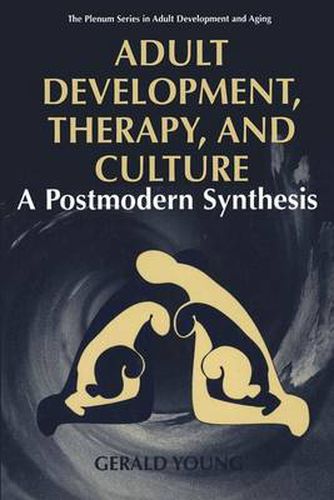Readings Newsletter
Become a Readings Member to make your shopping experience even easier.
Sign in or sign up for free!
You’re not far away from qualifying for FREE standard shipping within Australia
You’ve qualified for FREE standard shipping within Australia
The cart is loading…






This title is printed to order. This book may have been self-published. If so, we cannot guarantee the quality of the content. In the main most books will have gone through the editing process however some may not. We therefore suggest that you be aware of this before ordering this book. If in doubt check either the author or publisher’s details as we are unable to accept any returns unless they are faulty. Please contact us if you have any questions.
This volume proposes a theoretical integration of several major streams in contemporary psychological theory about adult development and therapy. It adopts the perspective that there are steps in development throughout the adult period, and that they are characterized by a union of the cognitive and affective, the self and the other, and idea with idea (in second-order collective abstractions). That is, they are at once postformal in terms of Piaget’s theory, sociocultural in terms ofVygotsky’s theory, and postmodern with the latter perspective providing an integrating theme. The affirmative, multivoiced, contextual, relational, other-sensitive side ofpostmodernism is emphasized. Levinas’s philosophy of responsibility for the other is seen as congruent with this ethos. The neopiagetian model of development on which the current ap proach is based proposes that the last stage in development concerns collective intelligence, or postmodern, postformal thought. Kegan (1994) has attempted independently to describe adult development from the same perspective. His work on the development of the postmodern mind of the adult is groundbreaking and impressive in its depth. However, I ana lyze the limitations as well as the contributions of his approach, under scoring the advantages of my particular model.
$9.00 standard shipping within Australia
FREE standard shipping within Australia for orders over $100.00
Express & International shipping calculated at checkout
This title is printed to order. This book may have been self-published. If so, we cannot guarantee the quality of the content. In the main most books will have gone through the editing process however some may not. We therefore suggest that you be aware of this before ordering this book. If in doubt check either the author or publisher’s details as we are unable to accept any returns unless they are faulty. Please contact us if you have any questions.
This volume proposes a theoretical integration of several major streams in contemporary psychological theory about adult development and therapy. It adopts the perspective that there are steps in development throughout the adult period, and that they are characterized by a union of the cognitive and affective, the self and the other, and idea with idea (in second-order collective abstractions). That is, they are at once postformal in terms of Piaget’s theory, sociocultural in terms ofVygotsky’s theory, and postmodern with the latter perspective providing an integrating theme. The affirmative, multivoiced, contextual, relational, other-sensitive side ofpostmodernism is emphasized. Levinas’s philosophy of responsibility for the other is seen as congruent with this ethos. The neopiagetian model of development on which the current ap proach is based proposes that the last stage in development concerns collective intelligence, or postmodern, postformal thought. Kegan (1994) has attempted independently to describe adult development from the same perspective. His work on the development of the postmodern mind of the adult is groundbreaking and impressive in its depth. However, I ana lyze the limitations as well as the contributions of his approach, under scoring the advantages of my particular model.